




As leaders of the President’s Advisory Council, Champion’s Advisory Council, and Manufacturing Association Advisory Council we recognize the importance of ensuring the manufacturing industry thrives by supplying a ready and qualified workforce. The manufacturing industry is the backbone of our nation and is vital to our economic growth and our nation’s security. It’s crucial we continue to support our manufacturing industry through continued collaboration, shared resources, and constant communication to support the industry’s growing workforce needs. By bringing together education and industry to solve this mounting workforce problem, we hope to make a true impact through creative solutions.
In the first year of the Manufacturing Imperative – Workforce Pipeline Challenge, the colleges worked tirelessly to expand career awareness to the next generation and engage key populations to increase the workforce. Industry is stepping up to be present in the classroom, develop apprenticeships and work-based learning opportunities, and are open to hiring any and all qualified individuals. Driving creative solutions, eliminating barriers for nontraditional individuals, and expanding career awareness and outreach to those on the sidelines will create meaningful progress. Industry and education must continue to coordinate efforts and design effective solutions to be successful.
The MI-WPC National Impact Report highlights the efforts made by the colleges, the councils, and SME to grow the manufacturing talent pipeline. This report provides insight into the strategic direction of this initiative, the potential impact of additional resources, and how this work will enhance the offerings at the college with the guidance of industry partners. Further, the Manufacturing Association Advisory Council is committed to providing perspective of industry leaders and strategies to enhance the talent pipeline. We remain committed to this initiative and to solving these big barriers to increase access to economic opportunities and prosperity for all.
Sincerely,


Sheree Utash, Ph.D.
President, WSU Tech Chair, MI-WPC President’s Advisory Council

Larry
Miller, Ph.D.
Vice President of Learning & Workforce Development, Greenville Technical College
Chair, MI-WPC Champion’s Advisory Council

Robin Ricks
Vice President of Policy & Advocacy, Manufacture Alabama
Chair, MI-WPC Manufacturing Association Advisory Council

As we mark the first year of the Manufacturing Imperative – Workforce Pipeline Challenge (MI-WPC), I am pleased to reflect on the significant milestones achieved in advancing manufacturing workforce development. Since its launch, MI-WPC engaged the 25 participating colleges and identified common challenges across the nation. This led to the added four insight studies to guide strategy and address workforce gaps and welcomed new partners to enhance the college’s outreach efforts. These milestones demonstrate the collective dedication to scaling and optimizing solutions that strengthen the manufacturing talent pipeline across the nation.
MI-WPC is more than an initiative — it is a transformative movement aimed at empowering community and technical colleges to cultivate the next generation of manufacturing professionals. By aligning resources, addressing barriers, and leveraging data-driven insights, this program lays the foundation for long-term success. In the coming years, MI-WPC is projected to prepare over 75,000 individuals to step into essential roles within the manufacturing sector.
The progress outlined in this report reflects the unwavering collaboration among participating colleges, industry leaders, and advisory councils. The Manufacturing Association Advisory Council (MAAC), President’s Advisory Council (PAC), and Champion’s Advisory Council (CAC) continue to provide vital direction, ensuring the initiative remains responsive to both learner and industry needs. Their guidance has been instrumental in shaping workforce development strategies that prioritize innovation, inclusivity, and growth.
Furthermore, the addition of new partnerships has expanded the capacity for colleges to engage with untapped talent pools, providing AI-driven outreach, targeted marketing, and enhanced support services. These collaborative efforts exemplify the program’s holistic approach to fostering career awareness and driving enrollment in manufacturing pathways.
As we move into the next phase, MI-WPC will focus on expanding insight studies, exploring innovative faculty sourcing solutions, and deepening engagement with manufacturers to strengthen program alignment. The commitment to sharing outcomes and advocating for policy changes will remain a cornerstone of our efforts to ensure the long-term sustainability of these workforce initiatives.
This report is a testament to the power of partnership and strategic alignment in addressing workforce challenges. By investing in manufacturing education and workforce development, we are not only filling job vacancies but also building resilient career pathways that uplift communities and bolster economic growth.
Sincerely,

Dr. Deb Volzer Director of Government & Workforce Partnerships SME

BlueForge Alliance is proud to stand alongside SME in our shared mission to revitalize and grow the manufacturing talent pipeline through the Manufacturing Imperative – Workforce Pipeline Challenge (MI-WPC). This collaboration aligns directly with the BlueForge Alliance mission that underscores the importance of strategic partnerships in addressing critical workforce gaps, fostering innovation, and ensuring the long-term strength of our nation’s industrial base. The MI-WPC is a dovetail with our goal of enhancing capability, capacity, collaboration, and resilience across the manufacturing sector.
BlueForge Alliance is dedicated to empowering the workforce that underpins the critical submarine industrial base (SIB) and the broad maritime industrial base (MIB). Through MI-WPC, we have collaborated to expand our reach to connect with community and technical colleges, equipping them with the resources and tools necessary to cultivate the next generation of skilled manufacturing professionals. The participating colleges have shown incredible progress by identifying shared challenges and taking decisive steps to address these complex challenges based on the outcomes of the four insight studies and the formation of new partnerships. These efforts align with our belief that sustainable workforce development thrives on collaboration between industry, academic institutions, local communities, and public entities.
The insights and achievements highlighted in this report demonstrate the collective power of partnerships and their tangible impact on workforce readiness. By continuing to bridge the gap between the manufacturing supply chain and the broader ecosystem, we are building a foundation that will serve the industry for years to come. Together, we are preparing individuals for meaningful careers and reinforcing our nation’s economic strength and security.
We look forward to the continued success of MI-WPC, the ongoing collaboration with SME, and the many dedicated stakeholders involved in this initiative. We are excited to do even more.
Thank you for your commitment and shared vision in shaping the future of American manufacturing.
All the very best,

Josh Cramer
Associate
Vice President, Workforce Development
3891 South Traditions Drive Bryan, TX 77807
jcramer@blueforgealliance.us



At its core, the Manufacturing Imperative – Workforce Pipeline Challenge (MI-WPC) is a bold initiative designed to transform the nation’s manufacturing industry by growing the workforce talent pipeline, strengthening local economies, and ensuring the sustainability of this critical sector. Launched by SME, the MI-WPC aims to accelerate, amplify, optimize, and scale workforce development efforts across 25 participating community colleges nationwide, reaching a projected 75,000 learners over three years. MI-WPC aspires to create a robust and resilient pipeline of talent that meets the evolving demands of the manufacturing industry while addressing systemic barriers to education and employment.
To achieve these ambitious objectives, SME partners with the MI-WPC colleges, providing access to additional industryaligned curriculum, cutting-edge research, and technologically advanced outreach strategies. The program also fosters a culture of collaboration by uniting colleges, industry leaders, community partners, and other stakeholders to share promising, replicable, and scalable practices that collectively tackle workforce challenges. In its inaugural year, the MIWPC laid a strong foundation by developing unique strategic plans for each participating college, informed by in-depth engagement with local stakeholders.
Building on this foundation, the MI-WPC launched two pivotal efforts: conducting four insight studies and hosting three recurring council meetings that engage partners at every level. These efforts prioritize collaboration and datadriven decision-making, ensuring that the voices and needs of the colleges and their communities remain central to the initiative’s progress.
As MI-WPC concludes its first year, the program reflects on key milestones, including the insight studies, council meetings, and findings from its inaugural end-of-year results. This report captures the program’s impact, contextualizing it through occupational and industry data while highlighting the collaborative efforts of MI-WPC partners. The insights gained will guide the scaling of proven solutions, the leveraging of partnerships to amplify impact, and the adaptation of strategies to meet the unique needs of local communities.
Looking ahead, MI-WPC remains steadfast in its mission to drive sustainable growth in the manufacturing workforce, strengthening the nation’s economic future through innovation and collaboration.
54,774 targeted individuals reached through pilot marketing campaigns in partnership with 2 colleges

42,976 individuals reached through targeted outreach efforts
2,113 events hosted across 25 colleges
17,802 new learners enrolled and engaged in manufacturing and STEM programs across 25 colleges
467 new manufacturing and STEM sections added across 25 colleges
The U.S. manufacturing sector faces an unprecedented workforce shortage, with over 460,000 positions currently unfilled — a figure that does not account for roles soon to be vacated by retirees. Without intervention, this gap is projected to grow to 4 million unfilled positions by 2030 (SME, 2024). This shortfall jeopardizes national security, economic stability, and the competitive advantage of American manufacturing. If left unaddressed, the economic impact could exceed $4 trillion in lost GDP, while the offshoring of manufacturing operations could accelerate a further weakening of the industry. Simultaneously, the country has an untapped talent pool of 8 million young adults aged 18–24 who are not currently pursuing post-secondary education or engaged in the workforce. Recruiting these individuals, along with adults who are not involved in training or employment, presents a significant opportunity.
Based on this workforce shortage, SME is dedicated to advancing the manufacturing industry through technological innovation, workforce development, and groundbreaking collaboration. The Manufacturing

Imperative – Workforce Pipeline Challenge (MI-WPC) is SME’s bold initiative to directly address workforce challenges by collaborating with 25 community colleges across the country. Leveraging over 90 years of manufacturing insights and partnerships, SME is positioned to amplify the voices of manufacturers and industry stakeholders, identify and address common workforce challenges, and scale impactful solutions to close the talent gap. Through its expertise in engaging employers, developing advanced manufacturing curricula, and fostering collaboration, SME empowers community colleges to build even more robust manufacturing workforce pipelines. By aligning with industry partners and associations, SME strengthens its ability to recruit, retain, reward, and retire talent, driving transformative change and ensuring the future resilience of the U.S. manufacturing sector.

Launched in September 2023, the Manufacturing Imperative – Workforce Pipeline Challenge (MI-WPC) is a transformative initiative designed to address critical workforce shortages in manufacturing by partnering with 25 diverse community colleges across 17 states. In its inaugural phase, the MI-WPC set out to assess the challenges and opportunities within each college’s community, fostering collaboration among stakeholders, collecting actionable data, and developing tailored strategic plans to meet local needs.
This initiative highlighted shared priorities across participating colleges, including:
• Engaging small- and medium-sized manufacturers to strengthen partnerships
• Expanding career awareness and outreach to attract new learners
• Aligning programs with learner needs through flexible modalities
• Strengthening connections with community-based organizations (CBOs)
• Increasing program capacity through faculty, funding, and facilities
To address these priorities, the MI-WPC implemented three cornerstone strategies:
1 2
The program activated three advisory councils — Champions’ Advisory Council, President’s Advisory Council, and the Manufacturing Association Advisory Council — to provide holistic perspectives on workforce barriers and best practices. These councils were designed to collaborate across levels, ensuring the voices of industry and education were mutually informed and aligned.
Focused research was conducted to uncover industry needs, learner barriers, and opportunities for CBOs to contribute to workforce solutions. These studies will inform actionable strategies and solutions, paving the way for improved employer engagement, enhanced outreach, and reduced barriers for learners.

3
To meet growing demands, the MI-WPC team expanded, increasing its staff and providing participating colleges with tools to enhance career outreach, access to Tooling U-SME’s comprehensive course catalog as well as marketing and creative support, and partnerships for targeted learner engagement. These resources empowered colleges to innovate, scale programs, and connect with underutilized populations.
Throughout the first year, the MI-WPC worked to drive systemic change by addressing barriers, advocating for policy shifts, and sharing promising practices across colleges and federal agencies. To address unique learner needs, colleges utilized Tooling U-SME content, resulting in successful completion of 14,000 courses by more than 280 learners.
This ambitious program is more than a response to the workforce gap, it is a commitment to revitalizing the manufacturing sector as a cornerstone of America’s middle class. MI-WPC aligns with national priorities to secure and expand the country’s industrial strength. As the initiative moves forward, MI-WPC will continue to drive transformative changes by fostering collaboration, scaling industry-aligned programs, and implementing data-driven solutions to build a resilient manufacturing workforce.
The Manufacturing Imperative – Workforce Pipeline Challenge (MI-WPC) achieved significant milestones in its inaugural year, highlighting its potential to revolutionize workforce development and strengthen manufacturing partnerships across its 25 participating colleges. Data collected from our member institutions reveal noteworthy progress in engaging new learners, expanding manufacturing programs, and increasing community outreach efforts.
However, several challenges were identified early, including:
1 Faculty Shortages: Persistent difficulties in recruiting qualified instructors have hindered colleges’ ability to expand course offerings. The disparity between competitive industry salaries and college instructor pay remains a primary barrier, limiting capacity to meet the growing demand for skilled talent.
2 Funding Gaps: Limited funding restricts efforts to upgrade facilities, acquire modern equipment, and provide competitive compensation for instructors. These gaps exacerbate existing challenges, constraining program growth and development.
3 . Public Perception of Manufacturing: The widespread misconception of manufacturing as a “dirty, dark, and dangerous” industry continues to hinder recruitment efforts. This negative image, coupled with a lack of career awareness and general knowledge of manufacturing opportunities, discourages potential learners from pursuing careers in the field.
Addressing these systemic issues requires targeted, supported, and innovative strategies to ensure sustainable progress. Efforts moving forward will focus on combating outdated perceptions, increasing awareness, and exploring practical solutions to faculty and funding challenges.
3,312 full-time STEM sections with 3,348 new STEM learners
428 short-term sections with 2,511 new students.

273 adult learning sections with 1,102 new students
377 customized training programs with 2,314 new learners
9, 285 total new learners across 20 schools

SME’s Manufacturing Imperative – Workforce Pipeline Challenge (MI-WPC) fosters meaningful collaboration between community colleges, industry partners, and local stakeholders. By leveraging research and outreach strategies, the initiative engages 25 colleges to tackle local workforce development challenges and strengthen manufacturing education across diverse communities.
In its first year, MI-WPC focused on increasing enrollment and engaging in manufacturing and STEM programs by mitigating misconceptions and introducing otherwise hidden career opportunities. Across 25 colleges, 2,113 events were held, engaging 42,976 individuals. More than half of the events targeted high school students, engaging 8,735 K-12 learners. Thirty-four percent of the events included faculty presentations, further engaging the community and sharing valuable information about manufacturing education and career opportunities.
Summer camps, a popular outreach strategy, provided K-12 learners with the chance to explore manufacturing career pathways and develop STEM competencies, preparing them for future education and training pathways. Another strategy is early learner engagement. To combat negative perceptions of the manufacturing sector, it is crucial to engage the community by highlighting the benefits of manufacturing careers and showcasing their modern, dynamic work environments. Achieving this goal requires a collaborative effort from all stakeholders to drive meaningful change.

25 colleges, 2,113 events were held, engaging 42,976 individuals. Across
Colleges play a crucial role in bridging the gap between secondary and postsecondary education by leveraging dual enrollment strategies. These programs provide high school students with an early opportunity to gain valuable skills and credentials for in-demand careers, creating a seamless transition into higher education and accelerating their readiness for the workforce. MI-WPC colleges have successfully engaged secondary schools through dual and concurrent enrollment programs, reaching 9,140 dual credit students. This included more than 1,000 sections, 669 unique courses, and 2,596 certificates awarded across 15 reporting colleges. Welding courses were particularly popular, enrolling 4,432 students and reflecting strong industry demand. While these dual credit programs effectively equip learners with marketable skills prior to graduation, scaling these efforts will require additional resources and strategic partnerships.
Welding programs consistently attract students at both secondary and postsecondary levels due to their accessibility and high demand, often leading to waitlists. However, other manufacturing and STEM fields, such as machining, maintenance, and mechatronics, often remain under-enrolled and overlooked. To meet the industry’s workforce needs, targeted career awareness strategies are essential to raise interest in these lesser-known programs.
To address the growing demands of industry, colleges must actively engage all available populations in talent development to harness the full potential of the community’s workforce. Key populations include veterans, youth, unemployed workers, and justiceinvolved individuals. Of the MI-WPC colleges, 95% reported having dedicated strategies to support veterans, including community networking, financial assistance, and specialized programs. Veterans represent a valuable talent pool for the manufacturing sector.
Justice-involved individuals are another important talent source, with 62% of participating colleges supporting targeted initiatives over the past year. These efforts not only reduce recidivism, contributing to public safety and community stability, but also provide a vital talent pipeline for the manufacturing industry. In the past year alone, colleges awarded 245 industry-recognized certificates across 19 programs to justice-involved individuals, with welding and OSHA 10 certifications being the most in demand.

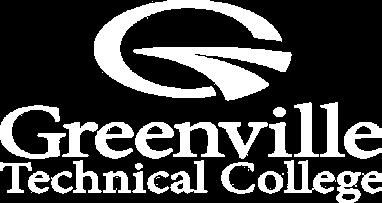
Greenville Technical College is targeting homeschool populations for manufacturing training and education opportunities through Facebook groups and community outreach tactics. The homeschool population is often overlooked as a talent pipeline source and can be difficult to reach.
As a result, nearly 40 responses were received from Greenville Technical College’s first Facebook post.
Homeschool students represent another often-overlooked group in the broader educational landscape, but they also offer an untapped potential for enriching the manufacturing talent pipeline. By providing homeschooling families with access to manufacturing and STEMfocused programs, colleges can engage students who thrive in more individualized learning environments. These students, who often demonstrate prominent levels of self-direction and motivation, are uniquely positioned to benefit from flexible, hands-on education that prepares them for careers in the manufacturing sector. To effectively reach this demographic, partnerships between colleges and homeschooling networks are crucial, offering targeted programs and dual enrollment options that cater to homeschoolers’ unique educational needs. Providing these students with early exposure to industry-recognized credentials and real-world experiences will foster a new generation of skilled workers who are prepared to meet the demands of the evolving manufacturing industry.
To effectively expand the workforce talent pipeline, colleges must increase the availability of manufacturing and STEM courses. In year one many of the MI-WPC colleges successfully expanded their course offerings by adding over 400 new courses to 4,390 total sections, with 3,312 of those being STEM-related, underscoring the strong alignment with high-demand fields. This expansion engaged 9,285 new learners. Several new STEM programs, along with targeted customized training initiatives, attracted 6,000 students combined, demonstrating the MI-WPC program’s capability to address workforce needs through thoughtfully developed courses. Despite these achievements, challenges such as the availability of qualified instructors and the need for funding to acquire industry grade equipment remain critical hurdles to overcome.
Beyond the addition of traditional STEM courses and short-term training programs, the colleges have also prioritized the development and expansion of apprenticeship programs. These programs are viewed as a promising workforce strategy, offering clear career pathways, and facilitating economic mobility. To bolster apprenticeship enrollments, colleges sought support from local manufacturers, emphasizing the value of these “earn-and-learn” opportunities. However, limited funding and resources have constrained their ability to scale these valuable programs to their full potential.
In its inaugural year, the MI-WPC program achieved significant milestones, laying the foundation for future growth. The expansion of course offerings, outreach to additional target populations, and cultivation of industry partnerships demonstrate the program’s transformative potential in manufacturing education. Nonetheless, challenges such as faculty shortages and funding gaps remain persistent obstacles. Addressing these issues with targeted investments, improved communication, and strategic resource allocation will be essential for ensuring the program’s long-term success. As the MI-WPC enters its second year, building on these insights and sustaining momentum will be critical to realizing its ambitious goals.

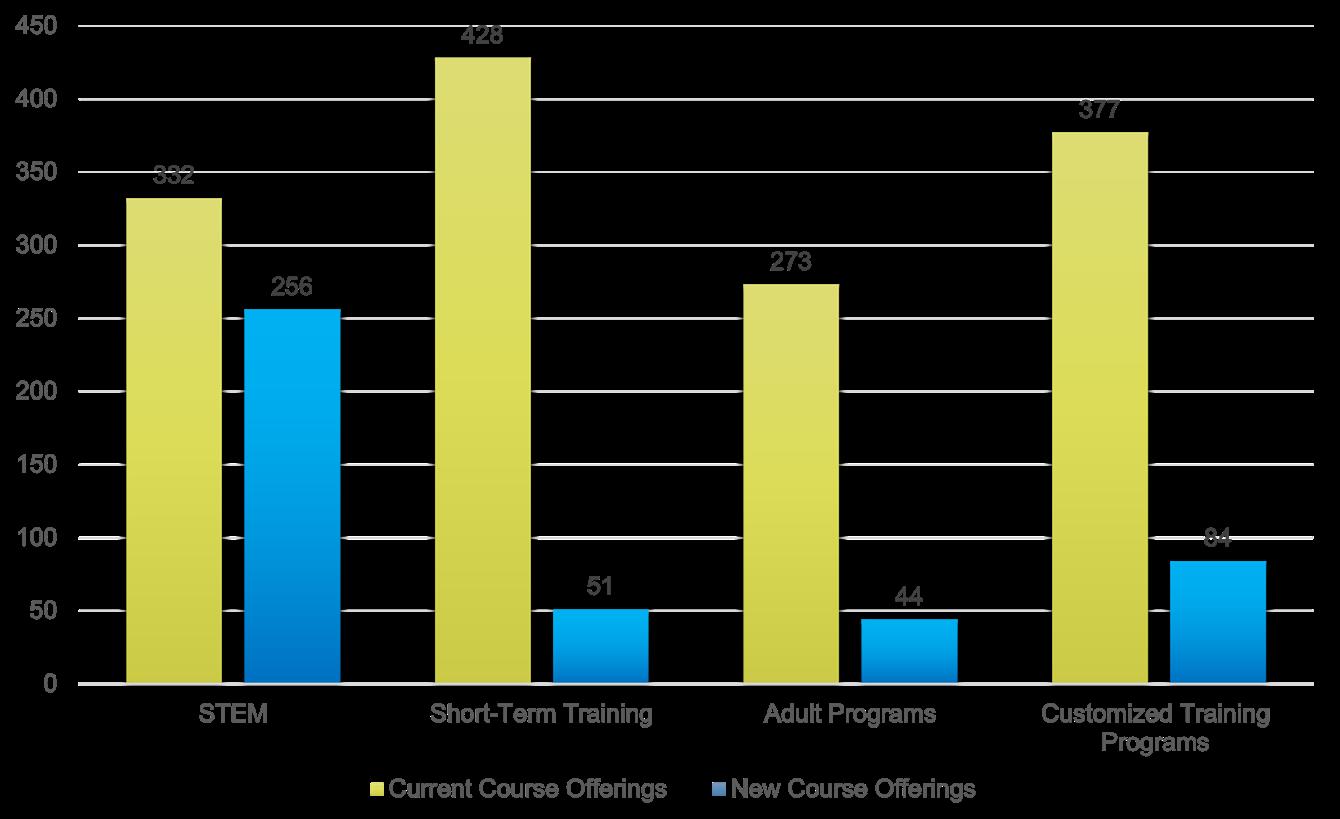


To support and guide the MI-WPC initiative, three dedicated councils meet regularly, each offering a distinct perspective on the program’s direction. These include the Champions’ Advisory Council (CAC), composed of experts from each participating college who are actively engaged in manufacturing workforce development operations; the President’s Advisory Council (PAC), which provides higher education policy and strategy insights; and the Manufacturing Association Advisory Council (MAAC), representing manufacturers including the often-overlooked voice of the small- to medium sized manufacturers. While each council brings a unique viewpoint, they all work toward a shared goal of expanding and strengthening the manufacturing talent pipeline. It is essential that MI-WPC strategies incorporate the perspectives of all three councils, ensuring a comprehensive approach to developing local, regional, and national manufacturing talent pipelines.

In the fall of 2024, the Champions’ Advisory Council (CAC) focused its monthly meeting on prioritizing solutions for the challenge of sourcing qualified faculty and enhancing employer engagement.
The Champions’ Advisory Council (CAC) meets monthly to discuss key challenges and promising practices related to engaging all student populations, sourcing qualified faculty, and fostering employer partnerships. The agenda is driven by the strategic plans developed to address the colleges’ specific needs. Members share successful programs, strategies, and effective practices, helping to enhance each college’s ability to engage its community. In November, CAC nominated Dr. Larry Miller — who now facilitates these meetings — as its chair.
The President’s Advisory Council (PAC) meets quarterly to address a wide range of topics that impact the MI-WPC initiative. Throughout the first year, PAC members developed a leading practices repository, which includes employer engagement strategies, curriculum validation processes, and student recruitment tactics. This repository allows colleges to adopt proven practices from other MI-WPC institutions to enhance their approach to building the talent pipeline.
PAC also focuses on engaging Local Workforce Development Boards (LWDBs) to better serve individuals who are currently outside of the workforce or training programs. In one key discussion, a staff member from the House Committee on Education and Workforce shared insights on the Workforce Innovation and Opportunity Act (WIOA) Reauthorization. PAC members provided feedback on the challenges posed by WIOA’s extensive paperwork, which hinders the effective use of federal workforce funds for underserved populations.
Additionally, the college presidents participated in several national conferences, including the American Association of Community Colleges’ Workforce Development Institute Conference, the Association of Community College Trustees’ Congressional Leadership Conference, and the High Impact-Technology Exchange Conference. These conferences provided valuable platforms for sharing employer engagement and recruitment strategies aimed at addressing the growing needs of the manufacturing workforce.

Mohawk Valley Community College and its Local Workforce Development Board maintain a strong partnership, aligning strategies and grants to achieve shared goals. Together, they collaborate on grant applications and implementation, ensuring maximum benefit to the community.
MAAC Chair Michael Eaton identified an employee sharing ecosystem in Springfield, Missouri where steel manufacturers share employees when production is abnormally high, allowing the manufacturer to meet the high production demands with a qualified and skilled workforce.
The Manufacturing Association Advisory Council (MAAC) meets every other month to discuss issues relevant to the manufacturing sector. Through their regular involvement, MAAC members help identify and address challenges that manufacturers face daily, offering insights that guide MI-WPC’s employer engagement strategies.
Over the first year, MAAC tackled key topics including career awareness, credentials of value, and manufacturing ecosystems. One highlighted initiative was the Be Pro Be Proud program, which raises awareness of skilled trades careers among high school students. Participating MIWPC states, including Tennessee and South Carolina, are investing in this national program, which aligns with MI-WPC’s goal of scaling career awareness efforts for target populations. Additionally, Michigan’s investment in SME’s PRIME program, which introduces K-12 students to manufacturing and STEM careers, was shared with the council.

Another challenge addressed by MAAC was the disconnect between employers and colleges regarding credentials. While AWS certifications are highly valued, there is little consensus on the value of other credentials. Many manufacturers have their own internal skill validation processes, which can create confusion for educators and learners. A key takeaway from these discussions was the need for stronger collaboration between colleges and employers to align curricula with industry-recognized credentials that employers can trust.
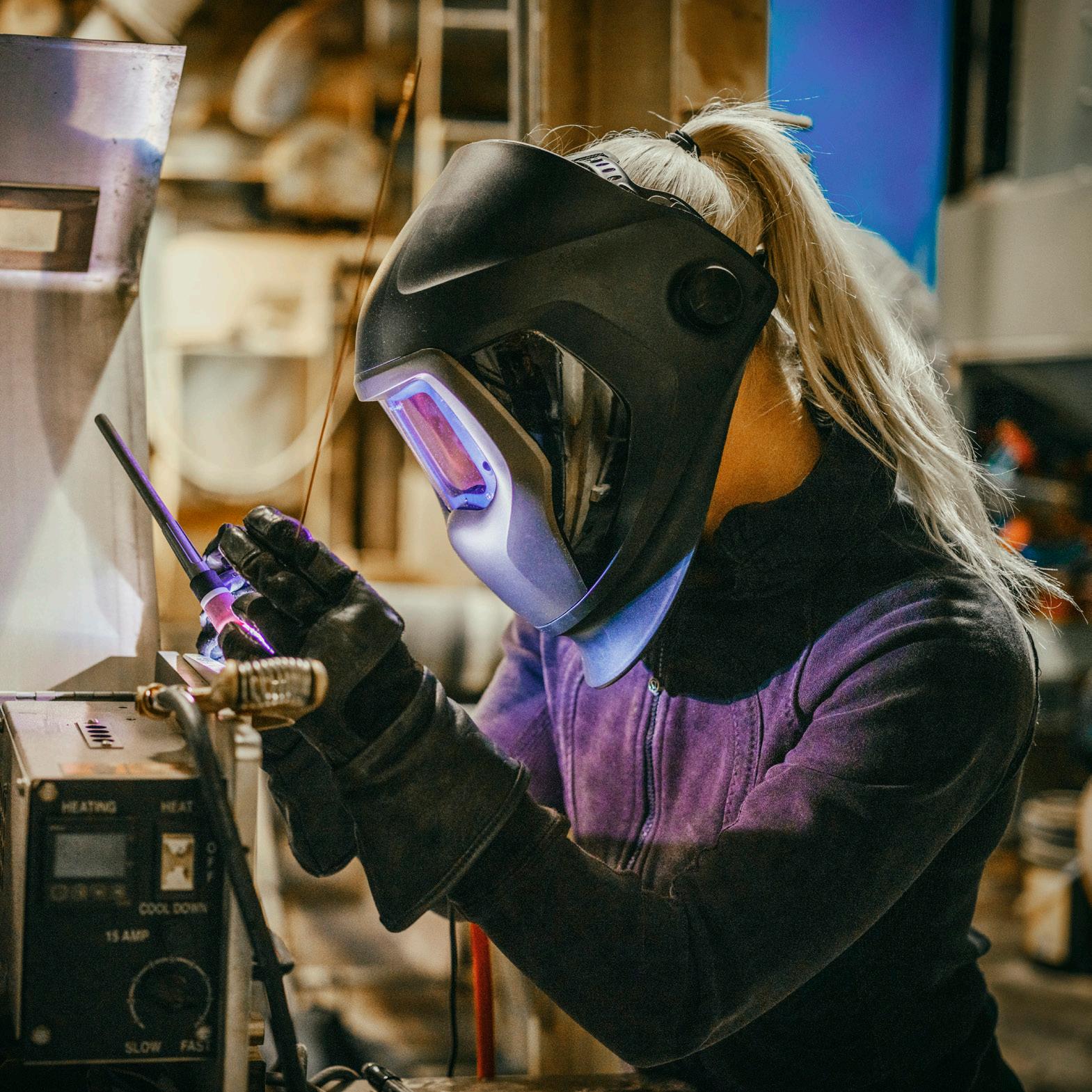
Building relationships with federal agencies and national stakeholders is essential for the success of the MI-WPC initiative. Throughout the year, several visits to Washington D.C. were made to establish relationships and share insights gathered from the 25 participating community colleges. SME will continue to work closely with all federal partners to advance the manufacturing workforce.


SME collaborated with the U.S. Department of Education (DOE) to provide feedback on policy impacting the colleges. One of the primary challenges highlighted is the difficulty in sourcing qualified faculty who meet both DOE educational requirements and the industry expertise necessary to effectively teach manufacturing courses. Many colleges are opting to hire industry experts as faculty for customized or short-term training programs, finding success in offering industry expertise through noncredit courses, which prepare learners for their manufacturing careers.

SME has engaged with the U.S. Department of Labor (USDOL) to explore areas for alignment and collaboration, particularly around apprenticeship programs. While apprenticeships offer clear benefits for both employers and apprentices, the paperwork burden associated with Registered Apprenticeship programs has made it difficult for both employers and colleges to fully utilize these opportunities. Feedback gathered from both groups has highlighted the need for a streamlined process. In addition to offering feedback to USDOL on apprenticeship programs, SME offered its expertise on USDOL’s manufacturing O*Net codes. SME leveraged its expertise to evaluate updated O*Net codes to ensure alignment with industry’s standards. Keeping these industry standards up-to-date will help further alignment between employers and education providers.
SME has established robust partnerships with various related associations to explore opportunities for collaboration and align shared goals and initiatives. These collaborations have allowed SME and its partners to share successful strategy practices, participate in key conferences, and build a network of professionals working toward shared goals.
These partners include:
• American Association of Community Colleges (AACC)
• American Manufacturing Communities Collaborative (AMCC)
• Association of Community College Trustees (ACCT)
• Center for Energy Workforce Development (CEWD)
• National Association of State Workforce Agencies (NASWA)
• National Coalition of Advanced Technology Centers (NCATC)
• National Governors Association and Executive Office of the President (EOP)
• New America
• U.S. Chamber Foundation
The collaboration with these organizations has produced results already. SME serves as an advisor on national councils, including ACCT’s Corporate Council and New America’s Partner Council — Accelerator for Community Colleges in the Innovation Economy. Through these partnerships, SME is exploring collaborations with national non-profits and job search platforms to further extend the reach of MI-WPC’s career pathway initiatives. For example, through SME’s partnership with BlueForge Alliance, all MI-WPC college programs are listed on the buildsubmarines.com website to support the nation’s submarine workforce industrial base. Collaborations like these will accelerate the growth of the manufacturing talent pipeline and increase the sector’s ability to meet workforce demands.
During the first year of the MI-WPC program, several shared challenges were identified, which led to the development of additional resources and studies to further understand these issues. These studies focus on engaging both employers and learners to guide specific strategies.
Engagement with the MI-WPC colleges revealed that many local manufacturers were not fully utilizing the colleges’ training capabilities. This concern was echoed across all 25 communities by industry leaders, college faculty, and community stakeholders. Furthermore, small and medium-sized manufacturers (SMMs) proved particularly difficult to engage. Increasing outreach, engagement, and understanding was identified as a top priority by the Champions’ Advisory Council (CAC). SME launched an outreach initiative to 100 SMMs, with the support of the college champions, to gather qualitative and quantitative data. While a small sample was collected, three key themes emerged:
1 Soft skills are crucial — technical skills can be taught
2 . Applicants and new hires are “ghosting” employers
3 . Technology, such as automation and robotics, streamlines work, but requires additional workforce training
Feedback from SMMs will continue to be collected throughout early 2025 in partnership with the Manufacturing Association Advisory Council (MAAC). It will be key to leverage the MI-WPC’s MAAC expertise in engaging small and medium-sized manufacturers to better understand the challenges facing the industry and for the development of innovative solutions.
Another employer-focused resource to be fully deployed in 2025 is the industry-driven hiring program. Throughout the MI-WPC engagement, it was clear that sourcing qualified talent was a high priority for industry leaders. Despite spending thousands of dollars on staffing agencies and other resources, employers continue to struggle with ghosting and retention. SME is offering a new solution, to be tested in 2025 through a partnership with the colleges. This solution provides industry leaders with access to a pre-screened, qualified talent pool for entry-level roles. If members of the talent pool do not fit the employer’s culture or requirements, they are reassigned to a different organization.



A common challenge voiced by all participating colleges was the lack of interest and career awareness regarding manufacturing programs and careers among learners. This lack of awareness and interest contributed to a limited talent pool for local manufacturers. To address this, SME leveraged its manufacturing marketing expertise to create targeted ads aimed at driving interest in manufacturing programs at colleges. SME also partnered with additional organizations to access a database of potential learners to better target outreach efforts. Furthermore, SME provides access to AI communication tools to enhance and support learner outreach. These combined resources will help us understand and potentially mitigate barriers faced by learners and gauge their interest in manufacturing programs. These efforts will be rolled out throughout 2025. In the initial phase, two colleges launched in late 2024 and saw interest from students quickly. Patrick & Henry Community College, which launched on November 19, saw 80 completed Request for Information (RFI) forms over the first four weeks. Patrick & Henry Community College gathered a total of 136 RFIs over the eight-week marketing campaign. This resulted in 11 immediate requests to connect with the college for more information, yielding an 8% conversion rate, which reflects strong interest in manufacturing, particularly in the rural region served by Patrick & Henry Community College. Six of the 11 connections who were engaged by the college would up enrolling in classes. WSU Tech also saw comparable results, with 51 potential learners in the pipeline over four weeks, nine of whom expressed immediate interest in WSU Tech’s manufacturing programs.

Strong partnerships with community organizations are crucial to creating a robust workforce pipeline. SME recognizes the value of collaboration to maximize impact and efficiency. Through its engagement with colleges, SME learned that most have deep partnerships with Community-Based Organizations (CBOs) and workforce organizations, though some communities have several CBOs, making coordination difficult. Additionally, it can be confusing for learners and community members to access these resources or know whom to contact. By aligning resources with CBOs and workforce organizations, additional target populations can be reached, reducing confusion and duplication of services. Strengthening and developing the community’s workforce ecosystem will deepen these connections. SME will also leverage national partnerships to bring proven practices and resources to local communities.
Retaining a skilled and engaged faculty is essential to the success of workforce development initiatives. The forums are designed to gather feedback, share promising practices, and develop a network of experts across different manufacturing disciplines at the 25 participating community colleges. To support this, a faculty forum was launched to facilitate targeted discussions and collaboration. The first faculty forum, held on October 30, focused on welding faculty sharing successful strategies regarding virtual welders, necessary soft skills, and identified skill gaps. These topics were chosen based on feedback from a pre-survey. This collaborative environment will continue throughout 2025, with additional disciplines being added.
As we look to 2025 and beyond, MI-WPC is poised to drive transformative change in the manufacturing workforce and education pipeline. Our efforts will focus on crafting scalable, replicable solutions that address critical gaps in talent and training while aligning with the unique needs of local communities. By expanding insight studies across all participating colleges, we ensure that localized data not only informs but also drives national strategies, fostering deeper connections between colleges, manufacturers, and community organizations.
Key priorities will include testing and refining solutions for sourcing and retaining faculty, strengthening connections between manufacturers and education providers, and expanding programs and targeted marketing initiatives to create community-driven pathways that boost local economies. These efforts will be supported by strategic partnerships, extending resources and capabilities available to colleges while engaging local and national stakeholders to strengthen the workforce ecosystem.
At the heart of these initiatives lies a dual commitment: listening to the nuanced needs of local employers and learners while scaling actionable solutions nationally. Leveraging SME’s expertise, collaborative networks, and the strength of participating colleges, we will tackle challenges such as the talent gap, faculty shortages, and disconnected pipelines with a data-driven, solutions-oriented approach. Additionally, our advocacy efforts will highlight shared challenges, driving policy recommendations and regulatory changes that champion the manufacturing industry at both local and federal levels.
The vision for 2025 is clear: to catalyze sustainable progress by empowering communities, strengthening educational frameworks, and delivering meaningful results for the nation’s manufacturing sector. By uniting stakeholders, scaling innovative solutions, and leveraging actionable insights, MI-WPC is not just responding to the challenges of today but shaping a more resilient, adaptive, and thriving workforce for the future. Together, we will build a manufacturing pipeline that fuels opportunity, prosperity, and growth for generations to come.


AL Robin Ricks, Manufacture Alabama (Chair, 2025)
IL Sarah Hartwick, Illinois Manufacturers Association
KS –
MI Bill Rayl, Michigan Manufacturers Association
MN Brenda Hawley, Minnesota Precision Manufacturers Association
MO Michael Eaton (Chair, 2024), Missouri Association of Manufacturers
MT –
NC David Haines, North Carolina Manufacturers Alliance
NY Mike Frame, Manufacturers Alliance of New York
OH Kenneth Poland, Ohio Manufacturing Association
OK –
SC Elisabeth Kovacs, South Carolina Manufacturers Alliance
TN Sarah Bennett, Tennessee Association of Manufacturers
TX Paul Mayer, Dallas County Manufacturers’ Association
VA Brett Vassey, Virginia Manufacturers Association
WA –
WI –
Calhoun Community College
Wallace State Community College
City Colleges of ChicagoRichard J. Daley
City Colleges of ChicagoWilbur Wright
Dr. Jimmy Hodges Tad Montgomery
Dr. Vicki Karolewics Jerry Murcks
Dr. Janine E. Janosky David Girzadas
Dr. Andres Oroz
Billy McFarland
College of Lake County Dr. Lori Suddick Richard Ammon
WSU Tech
Grand Rapids Community College
Dr. Sheree Utash (Chair) Scott Lucas
Dr. Charles Lepper Kristi Haik & John VanElst
Schoolcraft College Dr. Glenn Cerny Robert Leadley
South Central College
St. Charles Community College
St. Louis Community College
Flathead Valley Community College
Wake Technical Community College
Mohawk Valley Community College
Columbus State Community College
Lorain County Community College
Tulsa Community College
Greenville Technical College
Motlow State Community College
Pellissippi State Community College
Dallas College System
Tyler Junior College
Patrick & Henry Community College
Edmonds College
Gateway Technical College
Dr. Annette Parker
Kelcey Woods-Nord & George Taylor
Dr. Barbara Kavalier Amanda Sizemore
Dr. Jeff Pittman Vincent Boyd
Dr. Jane Karas Lisa Blank
Dr. Scott Ralls Al Brewer & Chad Ray
Dr. Randall VanWagoner
Dr. David Harrison
Dr. Marcia Ballinger
Dr. Leigh B. Goodson
Dr. Keith Miller
Dr. Michael Torrence
Dr. Anthony Wise
Dr. Justin Lonon
Dr. Juan Mejia
Dr. Greg Hodges
Dr. Amit Singh
Dr. Ritu Raju
Cory Albrecht
Jeff Spain
Terri Burgess Sandu & Tracy Green
Christine Allison & Pete Selden
Kelvin L. Byrd & Larry
Miller (Chair, 2025)
Eric Reynolds & Larry Flatt
Patty Weaver
Greg Morris & Eddie Tealer
Deana Sheppard & Adam Palacios
Rhonda Hodges
Mel Cossette & Kristi Lagrutta
Steve McNaughton
The MI-WPC colleges are focused on building capacity to meet the needs of their local manufacturing industry partners by expanding resources, enhancing faculty expertise, and upgrading facilities to align with industry demands. This effort also includes developing curricula that reflect evolving manufacturing technologies and fostering partnerships with employers to offer hands-on training opportunities. Strengthening these areas enables colleges to effectively prepare a skilled workforce, drive innovation, and support economic growth.
AL
Calhoun Community College developed a degree pathway that integrates additive manufacturing, drafting technology, and visual communications. This unique combination exposes students to manufacturing techniques and processes while incorporating creative elements used in the industry. By blending technical and creative disciplines, this degree pathway broadens student exposure to manufacturing beyond traditional technical training courses.
IL
MO
College of Lake County (CLC) offers a flexible, hybrid learning model through its Industrial Technology (INT) program. Students benefit from open lab hours five days a week, providing the flexibility to attend sessions that fit their schedules. They receive continuous, personalized support from a full-time faculty member and a lab assistant. Students are expected to complete the online portions of their courses outside of class and follow a schedule to meet self-set learning targets. This flipped classroom model enhances student autonomy, allowing students to learn at their own pace, and fosters a more equitable learning environment. The INT lab is housed within CLC’s Advanced Technology Center.
St. Louis Community College is constructing a new facility to house a welding certificate program and several other programs. The new facility will offer its first classes in Spring 2025, with all proposed classes expected to be operational by December 2025. This expansion will help the college meet the growing demands of local employers by offering additional courses and programs.
MT
OH
OK
Flathead Valley Community College developed a two-week short course on CNC Essentials. This non-credit course, funded by the Haas Foundation, is offered through continuing education, with students only required to pay a $15 registration fee. Upon completion, students will have foundational knowledge and hands-on experience, preparing them for entry-level manufacturing positions.
Columbus State Community College is enhancing its welding program through innovative teaching methods. By utilizing virtual welders and recording students’ welds, students can easily identify mistakes and improve their skills more effectively.
Tulsa Community College has formed a strong partnership with its local technology center, sharing an employee between the college and the center. This collaboration provides a focused approach to manufacturing and workforce development, addressing both short-term and long-term workforce needs for local employers. The increased alignment and cooperation between the college and the technology center streamlines the navigation of the state’s education system, enhancing efficiency within the community.
The MI-WPC colleges are broadening the manufacturing talent pipeline by enhancing access to training programs for a wide range of learners, including those with non-traditional backgrounds. This approach focuses on creating flexible learning pathways and reaching potential learners who have been sidelined in education and employment. By expanding opportunities to these individuals, the colleges are strengthening the workforce and increasing the pool of talent available for high-demand manufacturing careers.
IL
KS
City Colleges of Chicago-Richard J. Daley has partnered with the Cook County Jail to offer weekend courses in industrial welding, known as Weekend Warriors. This intensive program spans 14 sessions, providing skill development for individuals reentering the community and equipping them for sustainable careers. One graduate of the program has even gone on to become an instructor, demonstrating the program's long-term impact.
WSU Tech invested in community navigators — local employees embedded in their neighborhoods — to better connect with underrepresented populations. The first navigator, fluent in Spanish, was placed in a predominantly Hispanic area of the city. This outreach resulted in an increase of Hispanic enrollments by more than 400 students and earned WSU Tech the designation of a Hispanic-Serving Institution in the fall of 2023. Following this success, WSU Tech expanded the program to predominantly Black neighborhoods, further strengthening connections with historically resilient communities and increasing overall college enrollment.
MI
OH
Starting in fall 2025, Grand Rapids Community College (GRCC) will cover in-district tuition and fees for Michigan high school graduates (Class of 2023 and beyond). Students eligible for Federal Pell Grants may also receive a $1,000 living expenses bonus. To qualify, students must complete the FAFSA, maintain Michigan residency, and enroll fulltime within 15 months of high school graduation. This initiative aims to reduce financial barriers and contribute to Michigan's goal of achieving 70% post-secondary education attainment by 2030.
Lorain County Community College collaborates with local partners to fully support justice-involved individuals during their transition to civilian life. The college provides wraparound services, including access to a food pantry, legal aid, and scholarships. This expanded support is vital for justice-involved individuals and can be adapted to assist other atrisk populations. By fostering an inclusive and supportive environment, Lorain County Community College exemplifies its commitment to equity, access, and holistic student development, empowering individuals and breaking cycles of poverty and recidivism through education and opportunity.
WA
SC
Edmonds College developed a strong partnership with Boeing to offer customized training and workforce preparation. Recently, the collaboration expanded to include a career launch program focusing on engineering, providing high school students with an educational pathway that includes paid internship opportunities. This expansion strengthens the long-term manufacturing talent pipeline.
Greenville Technical College is targeting homeschool populations for manufacturing training and education opportunities using Facebook groups and community outreach strategies. This often-overlooked talent pool can be challenging to connect with, but Greenville Technical College has already received 40 responses from its first Facebook post, demonstrating the potential of this outreach approach.
The MI-WPC colleges are actively engaging local manufacturing employers to design relevant curricula, ensure successful placement of learners in manufacturing careers, and implement collaborative work-based learning programs. By partnering with industry leaders, the colleges offer internships, apprenticeships, and job placement opportunities that create direct pathways to employment. These partnerships align educational programs with workforce needs, driving innovation and growth within the manufacturing sector.
AL
NC
Wallace State Community College has a well-established FAME program, which partners with local manufacturing industry leaders to develop pathways that provide hands-on learning. This program prepares future technicians for careers in high-demand fields such as mechatronics, automation, and advanced manufacturing. By introducing FAME, Wallace State offers students industry-relevant skills and certifications, bridging the gap between education and workforce requirements.
Wake Tech engaged with local industry partners, including Siemens, to develop apprenticeship programs tailored to the needs of the manufacturing sector. Positioned to support the region’s growing manufacturing industry, Wake Tech is also leading the AdvanceNC initiative, a consortium of 11 North Carolina community colleges collaborating on curriculum development to meet the emerging battery industry’s workforce demands. This collaboration is poised to bring 10,000 new jobs to the state.
NY
Mohawk Valley Community College has its local MEP on campus, which creates a direct line to the small and mediumsized manufacturers. This partnership has driven an economic impact to over $245 million over the years, while also ensuring quality technical training is provided to local area employers. This partnership allows industry to be at the forefront of program and course development in meeting the needs of local manufacturers.
TN
TN
Motlow State Community College expanded its reach by engaging companies nationwide through customized training programs. These programs allow companies to send their incumbent workforce to Motlow’s campus for intensive training. This expansion is a result of a strong partnership with state and local economic developers, enhancing the college’s ability to meet workforce development needs across industries.
Pellissippi State Community College is investing in the development and expansion of apprenticeship programs to better align with the needs of both learners and industry. This involves close collaboration with local employers, who help shape the design and curriculum of each apprenticeship program. These partnerships ensure that career progression is supported through well-developed pathways that lead to sustainable employment.
WI
IL
Gateway Technical College is innovating its student engagement strategies to spark interest in manufacturing careers. One of the ways the college does this is by offering robot-led tours of its lab, which highlight Industry 4.0 training and its alignment with local industry workforce needs. This unique approach aims to inspire students and increase awareness of the potential for careers in advanced manufacturing.
Wilbur Wright College – City Colleges of Chicago partnered with the University of Illinois-Urbana Champaign to support students pursuing engineering degree pathways. This collaboration allows students to easily transfer from Wilbur Wright to the university, providing a seamless transition from a two-year to a four-year institution. Additionally, students can take university courses before transferring while paying Wilbur Wright tuition. As a Hispanic-Serving Institution (HSI), Wilbur Wright is fostering diversity in manufacturing and STEM fields, thereby expanding the talent pipeline for the workforce.
The MI-WPC colleges are collaborating with a wide range of partners to extend their reach and connect with underserved populations interested in manufacturing careers. By aligning with community-based organizations, the colleges offer wraparound services, reduce barriers to education, and provide targeted support that enhances student success. These partnerships strengthen the talent pipeline by creating inclusive pathways into manufacturing, benefiting both learners and local industries.
MI
MN
Schoolcraft College hosted the 2024 Angileri Quality Institute Symposium, highlighting innovative workforce strategies focused on electric vehicle (EV) mobility and demonstrating best practices in industry and education collaboration. To drive student engagement, the college offered a $100 scholarship to the first 25 registered students. The symposium featured inspiring sessions with industry leaders and an opportunity to see a student-built vehicle from Schoolcraft College in action. Events like this highlight the talent and innovation emerging from our institutions.
South Central College has forged strong partnerships with its four-year institutions and the business community. These close relationships with employers have led to investments in updating facilities and equipment. As a result, students are learning with the latest industry-grade technology, ensuring a seamless transition from education to employment. Notably, a local manufacturer made a significant investment to upgrade the college's welding labs.
TX
St. Charles Community College has built strong partnerships with local K-12 schools, partner colleges, and workforce organizations. In collaboration with Missouri S&T, the state’s premier engineering university, manufacturing awareness and pathway programs will be enhanced through dual enrollment, internships, and continuing education. The college will focus on outreach to its local K-12 partners to strengthen the talent pipeline.
In 2019, Dallas College created a unique funding model and partnerships that provide students with tuition covering books, course fees, bus passes, and other necessary school items. Additionally, DCC offers food and clothing banks and childcare services as needed. By addressing these barriers upfront, the college ensures that students have everything necessary to be successful from day one. Leveraging deep partnerships with local organizations, DCC supports students both in and outside of the classroom.
TX
VA
Tyler Junior College developed a strong partnership with Texas A&M University to ensure a seamless approach to engineering education. This collaboration facilitates an easy transition for students from Tyler Junior College to Texas A&M, streamlining the path to degree completion.
Patrick & Henry Community College was recognized by NC3 and Festo as an Advanced Manufacturing Center for Excellence, a testament to its instructor expertise, student achievement, and industry partnerships. Students at Patrick & Henry Community College are the first in the nation to earn the latest Industry 4.0 certifications, with over 3,500 industry certifications awarded to date. The college’s close relationships with employers and key stakeholders ensure the success of its students.
To assess the impact of our efforts, we asked participating colleges to provide specific data points that demonstrate their contributions to expanding the workforce talent pipeline. These metrics reflect increases in manufacturing and STEM programs, growth in learner enrollment, and outreach efforts aimed at expanding the talent pipeline. The following data points were gathered from 19 participating MI-WPC colleges.
The colleges added over 250 new full-time credit-bearing manufacturing and STEM courses, expanding their academic offerings. Additionally, other course types, such as short-term training opportunities and customized training, were added to further support the talent pipeline. As a result of the growth in course offerings, the colleges experienced an increase in enrollment. The most significant rise in learner enrollment occurred in full-time STEM programs, followed by short-term and customized training programs. Full-time programs tend to be more accessible to learners as they can be supported by federal financial aid, whereas short-term and customized training programs require alternative funding sources.
The colleges also ramped up their outreach efforts, with a strong focus on high school engagement and campus tours. Tours are particularly effective in dispelling negative perceptions of manufacturing by highlighting the clean, highly technical nature of both the labs and the industry.
Data Definitions:
STEM Programs
Short-Term Courses
Adult and Career Development Programs
Full-time manufacturing and STEM programs (e.g., Welding Technology, CNC Machining and Precision Manufacturing, Industrial Maintenance Technology)
Programs offering credentials, micro-credentials, or soft skills training, typically less than 16 weeks (e.g., Lean Manufacturing Six Sigma, Mechatronics Fundamentals, Basic Robotics)
Programs primarily serving individuals over the age of 25, including makerspace initiatives, incubator workshops, and programs designed to engage special communities of interest (e.g., Work-Based Learning Opportunities, Financial Literacy courses, Career Exploration workshops, English as a Second Language, GED Preparation)
Customized Training Programs
Short-term programs tailored to meet the specific needs of an employer, often leading to employment opportunities, or upskilling within the learner’s current workplace (e.g., Quality Control and Inspection Training, Forklift Operation and Safety Training, Safety and OSHA Compliance Training)

New Learners Enrolled

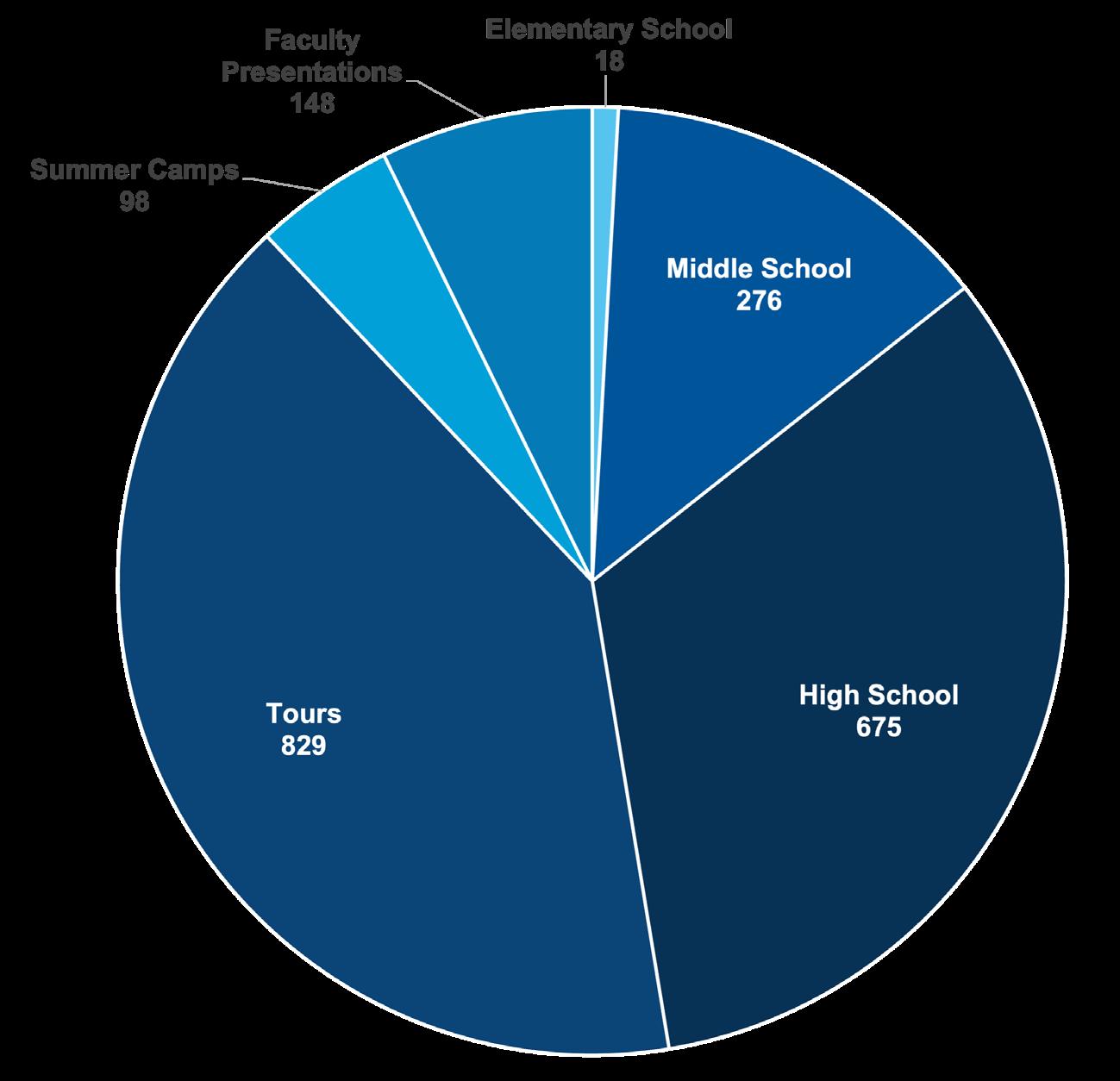
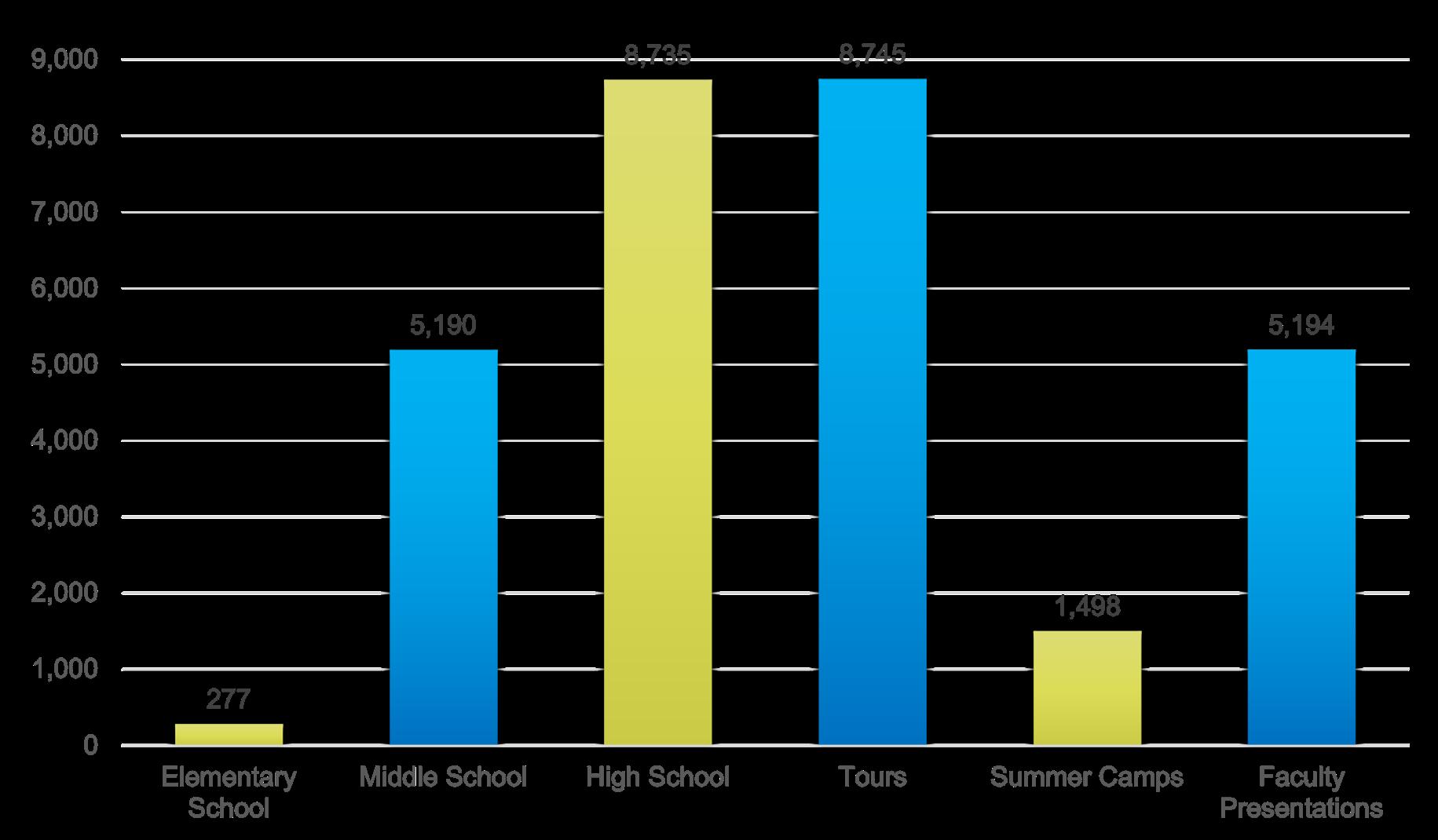

MI-WPC colleges maintain strong academic partnerships with high schools through dual enrollment programs, allowing students to complete their high school coursework while earning college credit. Many states provide dedicated funding to support these programs. All MI-WPC colleges participate in dual or concurrent enrollment, offering 1,115 courses to 9,140 dual credit students across 17 participating institutions.

Dual credit manufacturing certificates allow high school students to earn college-level certifications while completing their high school education. These certificates play a crucial role in equipping individuals with in-demand skills that lead to meaningful employment opportunities. The MI-WPC colleges offer these programs as accessible pathways for all target populations, including recent high school graduates, career changers, and individuals facing systemic barriers. By providing flexible learning options and aligning with workforce needs, manufacturing certificates help bridge skill gaps, enabling individuals to secure family-sustaining wages and contribute to economic growth and innovation. In the past year, across 74 programs, the colleges awarded 2,596 manufacturing and STEM certificates to dual credit students.

Targeted populations refer to specific groups within the community who may face barriers to education and employment, and for whom the MI-WPC colleges develop tailored programs and services to ensure equitable access to workforce opportunities. These populations may include veterans, justice-involved individuals, and others who benefit from specialized support. For instance, all participating colleges serve the veteran population by providing wraparound services like financial assistance, educational support, networking, and community engagement.
Additionally, 62% of the colleges have dedicated strategies to support justice-involved individuals (JII), with 693 JII students enrolled in 122 available courses across 11 communities. Popular programs for JII students include Automotive, Manufacturing, OSHA-10 Certification, and Welding. By engaging these populations, the colleges contribute to reducing recidivism, enhancing safety, and fostering long-term success for individuals and communities.


Dr. Deb Volzer
Director of Government & Workforce Partnerships (614) 499-5889, dvolzer@sme.org

Established in 1932 as a nonprofit organization, SME represents the entire North American manufacturing industry, including manufacturers, academia, professionals, students, and the communities in which they operate. Together we share one common belief: Manufacturing holds the key to economic growth and prosperity. SME accelerates new technology adoption and inspires and builds North America’s talent and capabilities to advance manufacturing as a diverse, thriving and valued ecosystem that drives competitiveness, resiliency, and national security. We believe in technology’s power and humanity’s innovation to advance our society and meet many national challenges. We design new ways to understand and solve problems, and our solutions advance the next wave of innovation and growth. Learn more at SME .org .